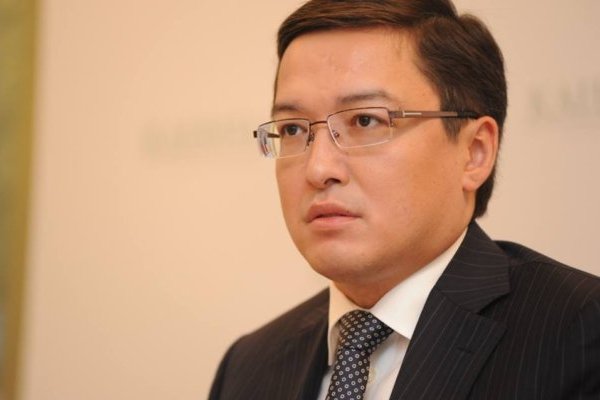Daniyar Akishev, the President of the National Bank of Kazakhstan, announced the intention to ban the exchange of cryptocurrencies for the national currency, the tenge, as well as all types of cryptocurrency mining. At the same time, the regulatory entity is working on a law that would regulate the cryptocurrency market in the country.
This announcement was communicated by Sputnik, a news portal. According to Akishev, the goal of these new measures is to minimize the risks that the use of cryptocurrencies on the national market implies, even though he is aware the cross-border market could not be controlled.
In his opinion, the lack of protection of the users and the easiness to use the cryptocurrencies for illegal activities, such as the money laundering and tax evasion are the main problems associated with this technological-financial instrument. Daniyar Akishev advised the citizens not to invest in digital currencies because of the high risk of losing their money. He said: “There is no guarantee that you can save the invested money. We hope for consciousness of people and their ability to give an adequate assessment. It is obvious that the rush associated with cryptocurrency and changes in its costs allowed many people to consider it as an investment tool and way to create wealth.”
After presenting the aforementioned arguments, the president of the central bank of Kazakhstan added that this institution was counting on the support of numerous state entities when it comes to creating and introducing the announced regulations.
Akishev already made similar statements in the past when he pointed out the intentions to regulate the cryptocurrency market in the country. A local news agency announced new measures to control the cryptocurrency transactions last month.
Akishev said: “In Kazakhstan, the National Bank is very conservative about this issue [cryptocurrency]. I welcome only rather stringent restrictions, that is, we want to prohibit the purchase and sale of the national currency for cryptocurrency. We want to prohibit the activity of exchanges on this segment and any kinds of mining. The digital currencies are an ideal instrument for money laundering and tax evasion. We minimize the risks related to the national market. However, no central bank has all the instruments to control this market in the cross-border market. Therefore, at least, we must prevent this risk via the national currency.
The president of the central bank of Kazakhstan thinks the cryptocurrencies do not have any value and warns about the difficulties the governments around the world are facing when trying to regulate the cryptocurrency market. The global monetary regulations are not applied to the cryptocurrencies because of their decentralized character, their non-material form and the possibility to be emitted and used by an unlimited number of anonymous sources.
Akishev said: “Cryptocurrency has no value. It has no real cost and no obligations of any persons. It is impossible to fully and effectively regulate cryptocurrency market because it has transborder nature. One may work being in Kazakhstan but all transactions occur abroad and there is no chance to control it from the national regulator side. They exist outside the jurisdictions of countries.”
Akishev does not have any doubts when it comes to the regulation of the cryptocurrencies in the country: “We are certain that we should introduce legislative restrictions on conducting cryptocurrency transactions in tenge, denomination of goods price in cryptocurrency, acceptance of cryptocurrency as means of payment, and exclude using the financial system to service cryptocurrency transaction. The Government supported these proposals. At present the relevant draft laws are being prepared.”
Kazakhstan is another country working on the cryptocurrency regulations, but the intention to impose strict regulations and bans might have negative impact on the development of the blockchain technology in this Asian country.
The cryptocurrency regulations are the new preoccupation of the governments and financial institutions around the world and they are ranging from flexible to strict regulations that restrict and ban certain activities related to the digital currencies, with the goal of controlling the cryptocurrency ecosystem.




